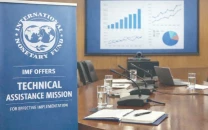Taxing technology

In a technological world where competition is fierce and constant, developing countries like Pakistan must rely heavily on technological innovation to carve out their niche and thrive. Access to modern technology has now become a necessity for economic advancement and societal growth. Yet, the FBR has recently introduced a new sales tax policy that threatens to undermine this critical foundation.
Effective from July 25, 2024, the revised Sales Tax Act, 1990, will impose a hefty 25% sales tax on completely built-up (CBU) mobile phones valued over $500, and an 18% tax on those under $500. The budget for the new financial year suggests additional increases in federal excise duty and PTA taxes, further raising the financial burden on technology consumers. This policy could throw a spanner in the works for technological progress in Pakistan as these new taxes may place vital digital tools beyond the reach of many Pakistanis. With mobile phones often serving as the gateway to the internet and essential digital services, these increased costs could widen the digital divide and hinder access to crucial technology for business growth. The ripple effects of this policy will likely touch various sectors. The education sector, which increasingly relies on digital resources for teaching and learning, could struggle as students and educators face higher costs for necessary technology. Small businesses, which depend on affordable tech to stay competitive, might find it more challenging to maintain operations. Even the healthcare sector, benefiting from advancements like telemedicine, could suffer as the cost of essential devices rises.
While the intent behind this policy is to bolster government revenue, it is vital to weigh the broader implications on the country’s technological landscape. Policies that restrict access to technology can inadvertently stifle innovation and economic growth. Instead, efforts should focus on fostering an environment where technology is accessible and affordable, ensuring that all segments of the population can benefit from its potential.














COMMENTS
Comments are moderated and generally will be posted if they are on-topic and not abusive.
For more information, please see our Comments FAQ